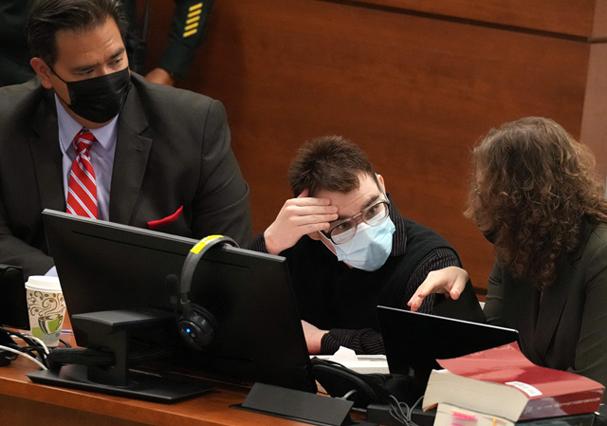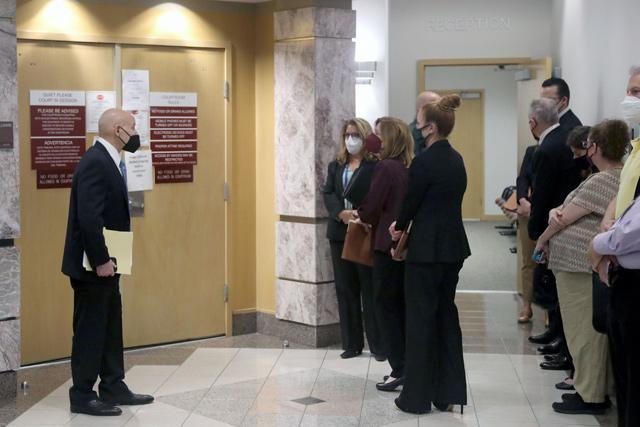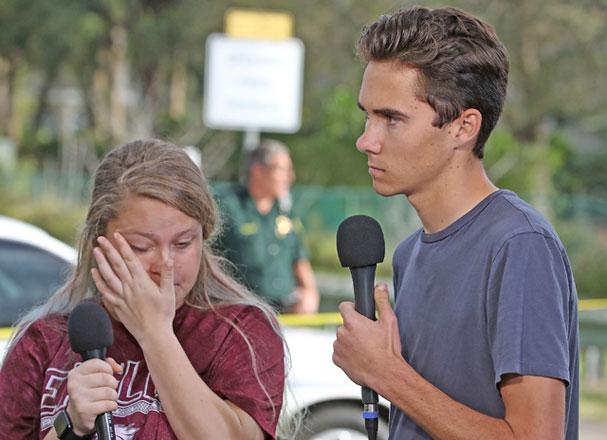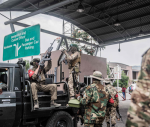You are here
US school shooter faces death penalty at sentencing trial
By AFP - Jul 19,2022 - Last updated at Jul 19,2022
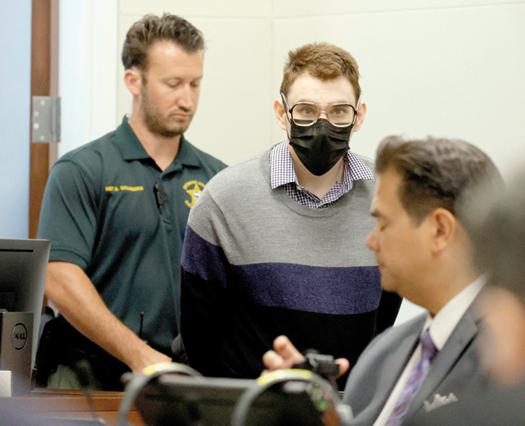
Marjory Stoneman Douglas High School shooter Nikolas Cruz is lead into the courtroom during the penalty phase of his trial at the Broward County Courthouse in Fort Lauderdale, Florida, on Monday (AFP photo)
FORT LAUDERDALE, United States — A prosecutor arguing for the death penalty denounced the “unspeakable” murders of 17 people at a Florida high school as the sentencing trial began on Monday for the troubled young man who admitted to carrying out the Valentine’s Day 2018 shooting.
Nikolas Cruz pleaded guilty in October to 17 counts of murder and 17 counts of attempted murder for the attack at Marjory Stoneman Douglas High School in Parkland, Florida.
A jury is to decide whether the 23-year-old should receive the death penalty or a life sentence for what lead prosecutor Mike Satz called a “cold, calculated, manipulative and deadly” massacre.
“I’m going to speak to you about the unspeakable, about this defendant’s goal-directed, planned, systematic murder, mass murder, of 14 children, an athletic director, a teacher and a coach,” Satz said in opening arguments.
He told the jury that three days before the shooting, Cruz made a cellphone video in which he said: “I’m going to be the next school shooter of 2018.
“My goal is at least 20 people with an AR-15 and some tracer rounds,” Cruz said in the video. “It’s going to be a big event and when you see me on the news, you’ll know who I am.”
The brown-haired Cruz, who was wearing large glasses and a gray-, purple- and black-striped sweater, listened impassively as the prosecutor recounted the day of the shooting in excruciating detail.
Parents of some of the victims were in the public gallery. They wept, clasped hands and shook their heads as the prosecutor spoke.
Satz said that Cruz, after fleeing the school, ordered a drink at a Subway sandwich shop and then went to a McDonald’s, where he asked the brother of a girl he had just shot for a ride.
The boy, who was not aware at the time that Cruz was the assailant, declined. Cruz was arrested shortly afterwards.
The trial in Fort Lauderdale is the rare instance of a mass shooter facing a jury, as they often either take their own lives or are killed by police.
The death penalty requires a unanimous decision by the jury. Cruz will otherwise be handed life without parole.
Nine-minute massacre
The Florida shooting stunned a country accustomed to gun violence and sparked new efforts, led by students from the school itself, to get lawmakers to pass tougher gun control laws.
Parkland survivors founded “March for Our Lives,” organising a rally that drew hundreds of thousands of people to the nation’s capital, Washington, in 2018.
Thousands turned out for demonstrations organized by the group last month following two other mass shootings: one at a Texas elementary school that killed 19 children and two teachers, and another at a New York supermarket that left 10 Black people dead.
Those shootings helped galvanise support for the first significant federal bill on gun safety in decades.
President Joe Biden signed the bill into law in June. It included enhanced background checks for younger buyers and federal cash for states introducing “red flag” laws that allow courts to temporarily remove weapons from people who are considered a threat.
But the measure fell far short of steps Biden had called for, including an assault weapons ban.
Cruz bought the AR-15 semi-automatic rifle he used in the attack legally, despite having a documented history of mental health problems.
Expelled from school for disciplinary reasons, Cruz was known to be fixated on firearms — and had been identified as a potential threat to his classmates.
On the day of the attack, he arrived at the school in an Uber, began shooting indiscriminately at students and staff, and fled nine minutes later, leaving behind a scene of carnage.
Cruz told a detective after his arrest that he heard demons ordering him to “buy weapons, kill animals and destroy everything”.
The US Justice Department in March announced that it had reached a $127.5 million agreement with survivors and relatives of victims of the shooting, settling all 40 related civil cases.
In lawsuits, survivors and relatives accused the FBI of negligence for failing to act on tips received prior to the attack that Cruz was dangerous.
Related Articles
FORT LAUDERDALE, United States — A harrowing video of the Valentine's Day 2018 shooting at a high school in Florida that left 17 people dead
MIAMI — A former student pleaded guilty on Wednesday to killing 17 people in a shooting rampage at a high school in Parkland, Florida, and a
PARKLAND, FLORIDA — A 19-year-old man who had been expelled from his Florida high school was due in court on Thursday, charged with 17 count


